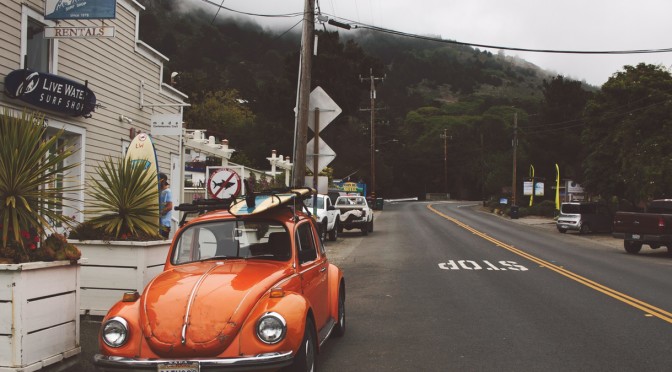
Driving small cars is one of those things that sometimes gets looked down on in the United States. Sure, poor college students, city dwellers, and tree huggers might be interested in compacts and sub-compacts, but everyone knows that if you’ve got the money for it, big vehicles are not only safer but a sign of your success in life, right?
Well, I won’t speak to the second point (that’s more of a topic for another kind of blog), but I can definitely speak to the first, and have multiple times in the past, such as when arguing for pedestrian safety, when informing parents about safe budget-friendly vehicles for teen drivers, or when describing how small cars can have lower death rates than large cars, SUVs, minivans, and pickup trucks.
Here are 4 reasons why every driver should drive a small car or SUV instead of a large car, pickup truck, or minivan unless necessary to do otherwise. If you need to transport more than 5 people at least once a month, for example, or if you actually use 5,000+ pounds of towing capacity on a monthly basis, you get a pass.
Small cars are safer for pedestrians, children, cyclists, and motorcyclists due to smaller mass and better visibility.
This is the most humanitarian reason to choose a small car over a large one, and it’s the argument I make the most often for this choice. To put it simply, no matter how many additional pounds we cram into vehicles under the auspices of safety, there are certain road users who will never be able to take advantage of them by definition: people who walk or wheel around.
Each of us is a pedestrian at some point in the day, unless we’re completely convalescent. Each of us either has a child, knows a child, knows someone with a child, or was once a child. Many of us are also currently, once were, or know cyclists and motorcyclists. And all of these people–all of us–deserve protection. We deserve to be able to use our streets and sidewalks and cities and towns without fearing death each time we step out of buildings and dare to use modes of transportation that don’t involve four wheels and steel cages.
Large cars, pickups, and SUVs are more likely to kill people outside of vehicles than small ones at any speed, simply because they have more mass, which means they transfer more energy into people. And there is a very limited amount of energy, relatively speaking, that a person can handle. Small vehicles give people a fighting chance, however small, of survival.
Besides the mass point, small vehicles also tend to have much better visibility than large vehicles, which makes them less likely to run over (forwards or backwards) pedestrians, children, cyclists, and motorcyclists. You rarely hear of people in Ford Fiestas backing over toddlers while reversing out of their driveways. You hear it much more frequently when it occurs with a large SUV or pickup truck, because it happens much more frequently in those (giant) kinds of vehicles.
Big cars / pickup trucks / SUVs are more likely to kill occupants in small vehicles in multiple-vehicle collisions while offering no advantage in single vehicle crashes.
This is one of the most readily-understood reasons to choose a small car over a large one; larger vehicles put smaller vehicles at risk. Unfortunately, many people draw the selfish instead of the selfless conclusion, and buy the largest vehicles possible in order to “improve their odds” in a crash.
It makes sense on the surface; if everyone else is driving big vehicles, you should buy one too to avoid being the odd man or woman out.
Unfortunately, the sense becomes senseless with a bit more thinking: if everyone else is driving big vehicles, then there aren’t any advantages to driving big ones too, unless you can find a bigger one.
In other words, you either have to join the insanity and in fact propagate it by buying ever-larger vehicles to stay ahead of the curve, or you have to put yourself at greater risk by driving a smaller vehicle, even though if more people followed your decision, the risks of driving a smaller vehicle would be eliminated.
The reason larger vehicles put smaller vehicles at risk in multiple vehicle collisions is…well, physics. Every body (e.g., a person, a bullet, or a vehicle) carries some amount of kinetic energy while in motion. The formula is .5 * mass * velocity * velocity. In a head-on collision between two vehicles of identical mass and speed, they deliver equal amounts of energy to each other. If one vehicle weighs significantly more than the other, however, such as when a 3,000 lb vehicle is hit by a 4,000 lb vehicle at the same speed, the heavier vehicle delivers significantly more energy to the lighter one while the lighter one delivers significantly less to the heavier one. In short, the occupant of the heavier vehicle puts the occupants of the smaller vehicle at greater risks of injury or death.
Many of us are okay with this. But we shouldn’t be. If not because we shouldn’t be okay with harming others, then because we can’t guarantee that we or our loved ones will always be in the bigger vehicle.
Beyond these points, large vehicles offer no advantages in single vehicle crashes. This is readily visible by the fact that around 50% of fatalities in vehicles of all sizes tend to be single vehicle crashes. Your mass doesn’t help you in a rollover or if you run into a tree or a telephone pole. It just makes you more likely to kill any pedestrians or occupants of smaller vehicles you run into.
Besides that, remember that some small cars have lower driver death rates than many much larger cars, pickup trucks, and SUVs.
Big cars / pickup trucks / SUVs offer no protection in collisions with large vehicles (e.g., semi-trailers, box trucks, school buses, regular buses, dump trucks, garbage trucks) or any vehicle requiring a CDL.
This is the least considered drawback to choosing a large car, SUV, or pickup truck, yet it’s closely tied to the previous reason to avoid them: big cars, pickup trucks, and SUVs aren’t going to keep you or your family safe if you’re hit by a truly large vehicle–the kind that requires a CDL, or commercial driver’s license. And there are a *lot* of those vehicles on our road.
You see them every day: semis, delivery trucks, school buses, normal buses, and garbage trucks are everywhere. And a vehicle that weighs 20,000; 40,000; or even 80,000 pounds is going to do exactly the same kind of life-ending damage to a 2,000; 4,000; or 8,000 lb vehicle. Your F-150 won’t protect you; nor will your duallie or your Tahoe or any other typical vehicle. Don’t even think about RVs; they don’t have to adhere to crash safety standards, so they offer no protection against vehicles that do (i.e., anything that requires a CDL).
So even if you don’t care about pedestrians or people in small cars, you might want to care about the fact that your big car is still a very, very small car compared to many of the truly large vehicles that roam our roads.
Small cars are better for the environment and better for your wallet.
This final set of reasons appeals to both individualist and collectivist mindsets. On the environmental side, small cars produce fewer emissions, which results in greater health across our country and less damage to the atmosphere. They also require less gasoline, which leads to less environmental destruction and hopefully fewer wars. They require less infrastructure to support them, which means fewer giant highways, pedestrian-killing high-speed city roads, and concrete desert parking lots.
On the personal end, small cars get better fuel economy, are easier to park, and are also cheaper to buy and maintain. And any of these reasons are worth considering.
Consider a smaller car for your next purchase, and encourage those you love to do the same. In the long run, it increases the safety and quality of our planet for everyone. And remember that small doesn’t have to mean unsafe.
—
If you find the information on car safety, recommended car seats, and car seat reviews on this car seat blog helpful, you can shop through this Amazon link for any purchases, car seat-related or not. Canadians can shop through this link for Canadian purchases.

